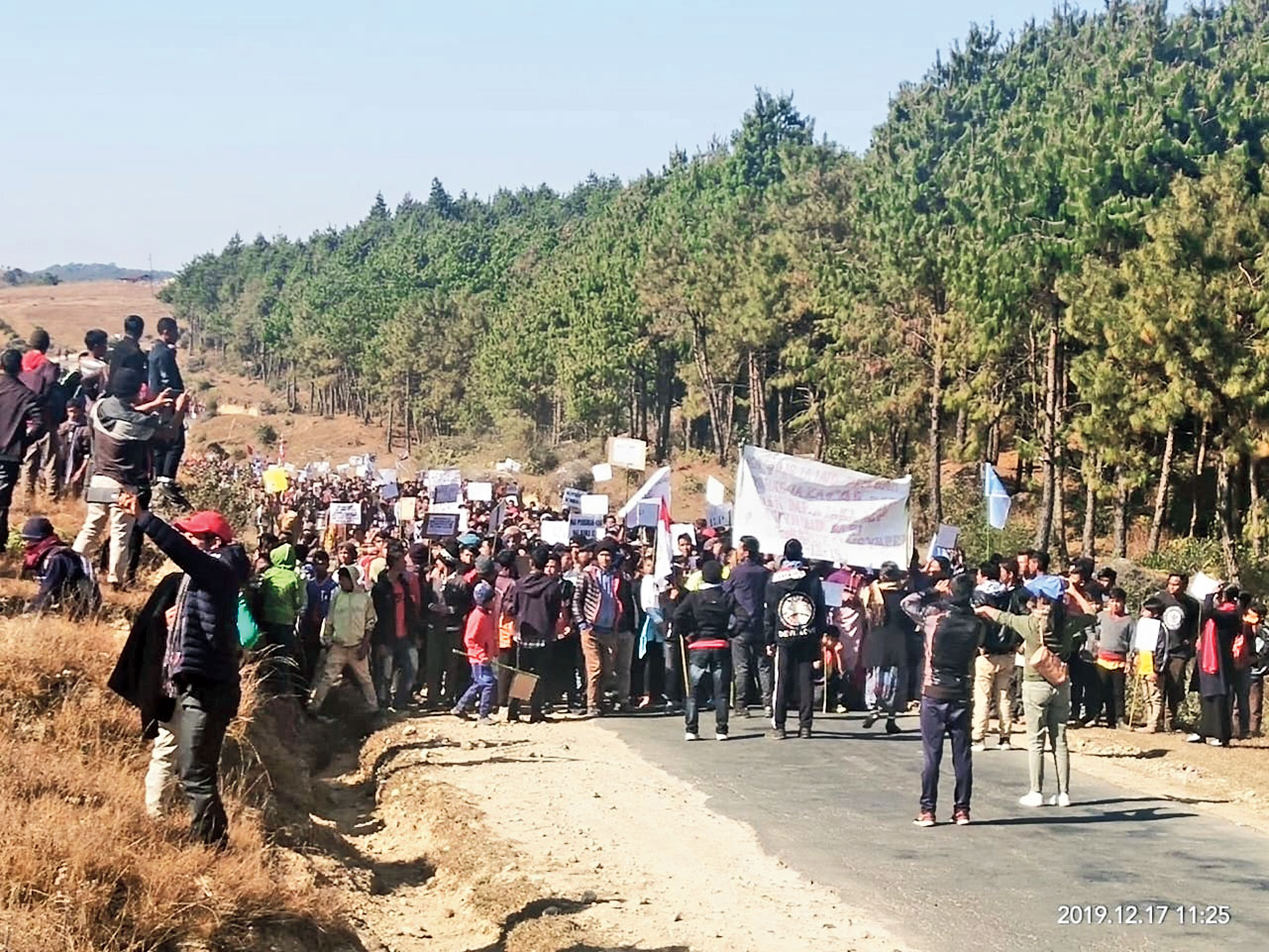The Khasi Authors’ Society has asked Union home minister Amit Shah to address the concerns of the people regarding the Citizenship (Amendment) Act, 2019, as it foresees long years of turmoil and unrest ahead.
In a letter addressed to Shah on Tuesday, the society demanded the implementation of the inner-line permit (ILP) to prevent implementation of the act.
“If the inner-line permit is being implemented in Manipur to make its people celebrate, why not the same yardstick be used for Meghalaya?” the Society asked Shah.
The Meghalaya Assembly will meet on Thursday to adopt a resolution asking the Centre to introduce the permit in the state.
The society, through its president D.R.L. Nonglait and general secretary Ronald P. Kharshiing, said despite the justification and arguments in favour of the act, the indigenous communities in the state feel that the act would bring about demographic change and their genuine right as the original citizens of the state would be endangered.
The Society also reminded about history that during the British era, a number of Khasi villages, including Jaintiapur, the then capital of the Hima Jaintia (Jaintia kingdom), had been tagged to Sylhet in present day Bangladesh.
“We have lost all the plain areas of our land due to the hegemonic rule of the colonial government. We have once been pushed to periphery and the injury has not healed. Now, if the then British areas in Shillong and Tura, which are located at the heart of the two important cities of the state, are not exempted from the purview of the act, the process of pushing the indigenous communities to the border will continue even in Independent India,” the Society said.
Moreover, the authors pointed out that the concerns of the people was not so much about religion, but about their land, space, economy, culture and their very existence.











